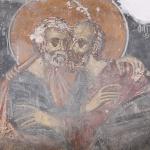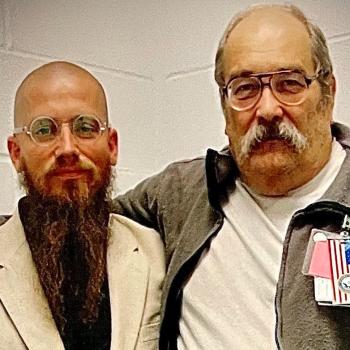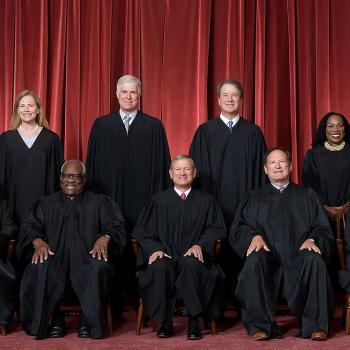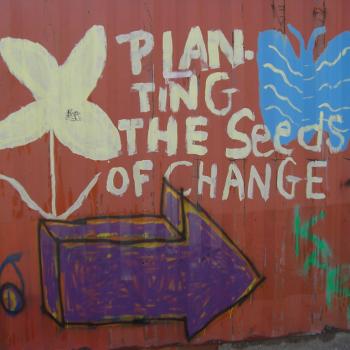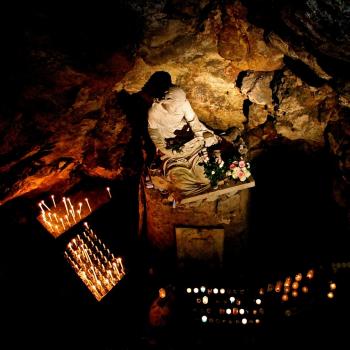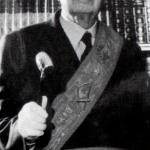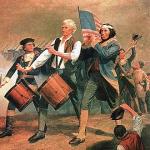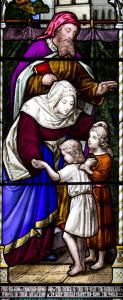
“Religion that is pure and undefiled before God and the Father is this: to visit orphans and widows in their affliction, and to keep oneself unstained from the world” (Jas. 1:27 RSV). This type of message is found throughout Scripture. In it, we find God constantly promoting those in need, those who have been or will be exploited, or those who are unjustly suffering at the hands of those with power and authority. In ancient Israel, as well as at many other times and places, orphans and widows had little to no one speaking on their behalf, protecting them, helping them survive, and so they were among those who were the most easily exploited, which is why there were consistently referenced as those who should be helped. God promoted their needs, standing against those who would hurt them in any way: “Father of the fatherless and protector of widows is God in his holy habitation” (Ps. 68:5 RSV). Those who love God will follow God and God’s ways; they will lift up those whom God lifts up, actively working in the world to bring relief to those God wants helped, especially if those who would otherwise oppress the needy are those who use religion, and religious piety, to justify their oppression or at least least defend themselves from criticism. This is why Jesus said:
Beware of the scribes, who like to go about in long robes, and to have salutations in the market places and the best seats in the synagogues and the places of honor at feasts, who devour widows’ houses and for a pretense make long prayers. They will receive the greater condemnation (Mk. 12:38b-40 RSV).
Christ’s earliest followers understood what he expected from them. They knew their faith, their religion, should be one which work to promote freedom and liberation instead of oppression. They had seen, from their own experience, how some used religion as a tool for exploitation, but they also knew, it was because there was potential for religion to promote that which is good and true that it could be abused in such a fashion. They knew Christ wanted them to follow the principles he set up instead of just following religion for their own selfish desires. They were not against those who devoted their time and resources to become scholars and used their study and knowledge for the promotion of the greater good, but they spoke out against those who used their religious status to promote themselves at the expense of others. All the study in the world is useless in and of itself if the truth which is discovered in it is not properly acted upon:
But if any one has the world’s goods and sees his brother in need, yet closes his heart against him, how does God’s love abide in him? Little children, let us not love in word or speech but in deed and in truth (1 Jn. 3:17-18 RSV).
Those who truly help those in need, those who truly look after the poor, the needy, the oppressed, will be remembered and loved by those they help; their names will be lifted up to God, and as a result of the good word given about them, God will reward them accordingly. On the other hand, those who like to be remembered and lifted up in elite society, that is by the rich and powerful, will find themselves joining in with those rich and powerful when the rich and powerful experience the full consequences of their lifestyles. When Jesus said, “Woe to the rich,” those who join in and cast their lots with those rich will experience the same woe, just as those who cast their lots with the poor and the oppressed will experience the blessings which God is going to send to them. This is why many spiritual leaders, like those in desert communities, would remind people that they must do what is right, and work with and support those in need:
An elder said to me: ‘It is good that people find your name written in the house of widows, orphans, and the poor, and those who have no strength, rather than find it among wine sellers. It is also good that they will find your mouth smelling of fasting and mortification, rather than smelling of wine.’[1]
Those who join themselves in solidarity with the poor will become like the poor, while those who join themselves in solidarity with the rich, such as the “wine merchants” mentioned by the elder, will become like and take on qualities of those they hang with. That is, there will be either an “odor” of sanctify or an odor of defilement, represented in this text with the smell of “fasting” and “mortification” for those who join in with the poor, because the poor themselves often are not eating and finding themselves experiencing mortification, or the smell of “wine” with those who join in with the rich, because the rich take in and enjoy the delicacies of the world to excess, which includes wine (Scripture itself suggests such a connection in the book of Revelation).[2]
We are expected to act based upon our unique abilities; we are not all going to be able to do the exact same thing as the person next to us, because our skills, abilities, and our resources differ from theirs. What is important is that we work for and promote those in need, that is, to work for social justice based upon our abilities. We should always look for and find what little we can do, as Abba Dioscorus wanted a monk to realize when the monk asked him what he should be doing:
A brother asked Abba Dioscorus of the Mount Yotarem saying: ‘what do you wish me to do, Father?’ Abba Dioscorus said to him: ‘Go and find a small bone for yourself, and clean your mouth with it.’ Said the brother:’What is this “little bone”?’ And Abba Dioscorus said to him: ‘The “little bone” is mortification, or fasting until evening, or a short vigil, that it might be [for you] a sweet fragrance before God.’[3]
Just as Dioscorus told the monk that he should find a “little bone” to use in cleaning himself spiritually, that is, to find the best spiritual practice for his own needs, and through it, find it helps him become pure and holy, so we must find our own “little bone” that will help us overcome own personal faults so that we can do all we should be doing in the world. We should find that practice, that action, that activity which we are not only capable of doing, but which will help us grow and transcend ourselves, for then we will find ourselves becoming more and more as God wants us to be. If we do this, we will find our religious faith will slowly become something which is pure and undefiled before God.
We must accept that there is no one way for everyone. Not everyone will be able to do the same thing. Some might find working with the hungry, making sure they are fed, is what they can do, at least as they begin their journey towards an undefiled faith. Others will find their skills are best put forth in government, helping to establish a more just society, one which works on behalf of the poor and oppressed instead of making things more difficult for them. Others will find their “little bone” will be the ability they have to interact with those who are homeless, treating them as persons with dignity, listening to them, being with them, showing them love and attention, and representing them and their needs to others. Of course, just as it is possible for someone to be a faster and also engage in an all-night vigil, so it is possible for someone to have many ways to help the poor and needy; we don’t have to limit ourselves to only one way, especially if we have the potential for more than one. What is important is that we do not ignore the needy, that we do not ignore the way God is a God of the oppressed, a God of the orphan, a God of the widow, a God of the poor, a God, even of the migrants and refugees. We need to find our way to join in with God’s solidarity with the oppressed, to lift them up, to help them be liberated from social injustices, and the structures of sin which create those injustices. We must truly care for those God has shown we need to take into our consideration, for the more we do that, the more we will find ourselves drawn in to God and God’s ways. And hopefully what began, perhaps, as a difficult thing, will become more and more natural to us, and as it does, we will find our interaction with God will become better and better as we become purer at heart, becoming, in that fashion, the children God wants us to be; our religion, truly, will be pure and undefiled.
[1] More Sayings of the Desert Fathers. An English Translation And Notes. Ed. John Wortley (Cambridge: Cambridge University Press, 2019; repr. 2023), 151 [“Sayings Preserved in Ethiopic”: E28].
[2] “Then one of the seven angels who had the seven bowls came and said to me, ‘Come, I will show you the judgment of the great harlot who is seated upon many waters, with whom the kings of the earth have committed fornication, and with the wine of whose fornication the dwellers on earth have become drunk’” (Rev. 17:1-2 RSV).
[3] More Sayings of the Desert Fathers. An English Translation And Notes, 150 [“Sayings Preserved in Ethiopic”: E21].
Stay in touch! Like A Little Bit of Nothing on Facebook.
If you liked what you read, please consider sharing it with your friends and family!
N.B.: While I read comments to moderate them, I rarely respond to them. If I don’t respond to your comment directly, don’t assume I am unthankful for it. I appreciate it. But I want readers to feel free to ask questions, and hopefully, dialogue with each other. I have shared what I wanted to say, though some responses will get a brief reply by me, or, if I find it interesting and something I can engage fully, as the foundation for another post. I have had many posts inspired or improved upon thanks to my readers.



